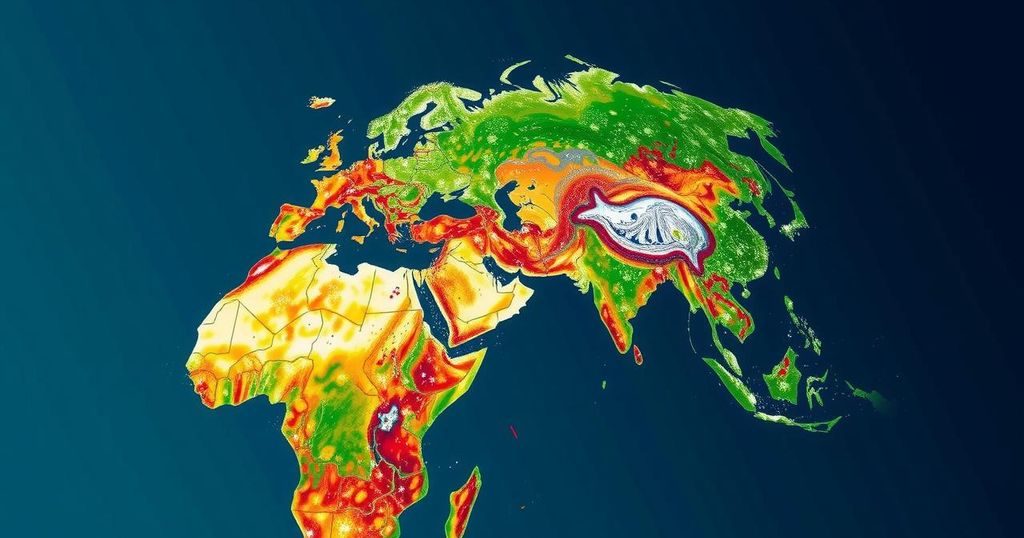Artificial Intelligence Advancements in Climate Modeling

Artificial intelligence is significantly improving climate models, contributing to more accurate predictions and better policy decisions at international climate conferences like COP29. This advancement is crucial for assessing both the impacts of climate change and the costs associated with mitigation efforts.
Artificial intelligence (AI) is playing a pivotal role in enhancing climate models, thereby facilitating more precise predictions related to climate change. These advanced models not only analyze the potential impacts of climate change but also assess the financial costs associated with mitigation efforts. The ongoing discussions at COP29, the United Nations climate conference in Baku, are significantly influenced by these computer-generated models, underpinning the necessity for accurate data to inform effective policy-making. As AI continues to evolve, its integration into climate science is expected to yield remarkable improvements in forecasting and decision-making, ultimately shaping our response to environmental challenges.
The intersection of artificial intelligence and climate science is increasingly recognized as a critical area of research and application. Climate models serve as essential tools in predicting future climate conditions and understanding the implications of human activities on the environment. The insights generated by these models are vital for policymakers at international forums like COP29, where negotiation and strategy often rely on robust data. With AI’s capability to process vast amounts of information quickly and identify complex patterns, it is uniquely positioned to refine the accuracy of climate models. Consequently, enhanced models enable better-informed decisions that are crucial for addressing the ongoing climate crisis.
In summary, the incorporation of artificial intelligence into climate modeling represents a significant advancement in our understanding and response to climate change. By providing more accurate predictions, AI-driven models enhance the effectiveness of policy-making processes at international climate discussions such as COP29. This underscores the critical need for continued investment in AI technologies to better equip us in navigating the complexities of climate mitigation and adaptation.
Original Source: www.economist.com





